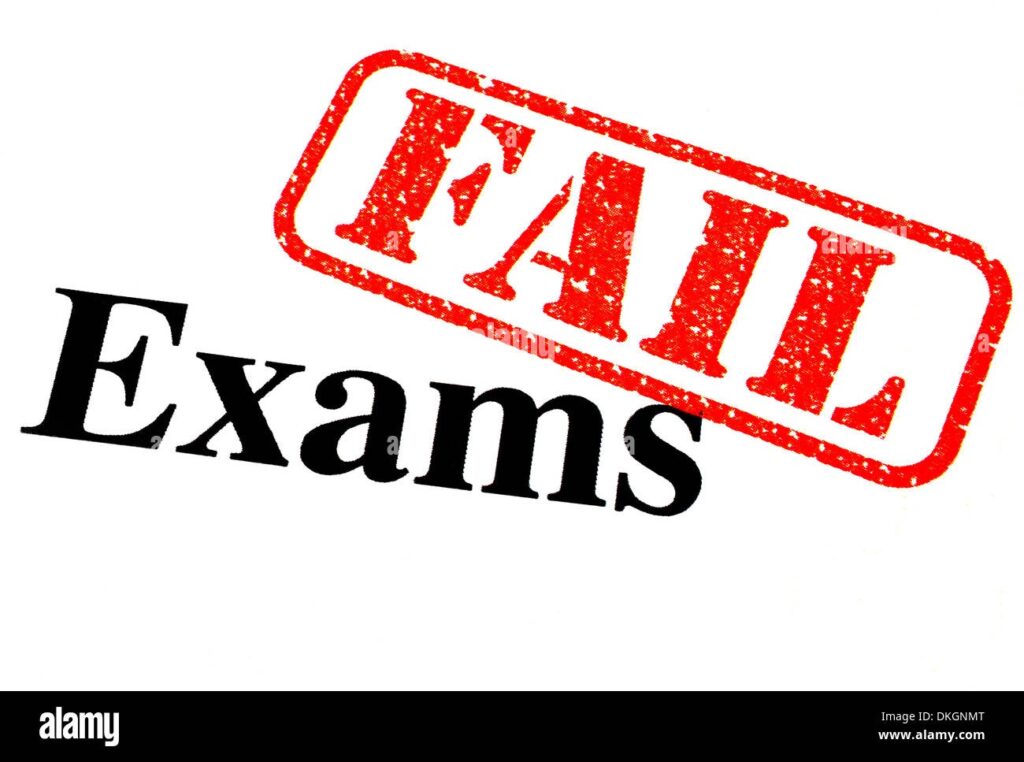Student Exam Failure: Why Do Students Fail?

Introduction
Student exam failure is a prevalent issue in education today, impacting the academic success and well-being of countless students. Understanding the root causes behind this failure is crucial for effective intervention and support. In this blog post, we will delve into the multifaceted reasons behind student exam failure and explore potential solutions to address these challenges.
Lack of Effective Study Skills
Inadequate time management
- Poor time management can lead to procrastination, last-minute cramming, and increased stress.
- Consequences include reduced retention of information, poor performance on exams, and overall academic struggles.
Poor note-taking strategies
- Ineffective note-taking methods can hinder students’ ability to organize and comprehend course material.
- This can result in confusion, lack of understanding, and difficulty in connecting key concepts during exams.
Limited use of active learning techniques
- Active learning methods, such as group discussions, hands-on activities, and practical applications, can enhance understanding and retention.
- Encouraging students to engage actively with course material promotes deeper learning and improves exam performance.

Start practicing for the forthcoming JAMB CBT exam with JAMBKIT, which contains Jamb 2000 to 2023 past questions, Post UTME past questions from 21 universities and polytechnics, Video solution to all Jamb questions, Brochure and Syllabus, E-library, Games and Much more
External Factors
Personal challenges
- Health issues, family problems, and financial stress can significantly impact a student’s ability to focus on studying.
- Recognizing and addressing these personal challenges is essential in creating a supportive environment for academic success.
Environmental distractions
- Noisy surroundings, lack of a designated study space, and other environmental factors can disrupt concentration and hinder effective studying.
- Providing students with a quiet, conducive study environment can mitigate these distractions and improve exam preparation.
Socioeconomic disparities
- Economic background can influence access to resources such as textbooks, technology, and academic support.
- Addressing these disparities through targeted interventions and support programs can level the playing field for all students.
Unrealistic Expectations
Pressure from family and societal expectations
- Cultural influences and external pressures can create unrealistic expectations for academic performance.
- Helping students navigate these expectations and prioritize their well-being over perfection can reduce stress and foster a positive learning environment.
Overemphasis on grades
- Focusing solely on grades can undermine the value of holistic learning and personal growth.
- Shifting the emphasis towards a growth mindset, curiosity, and lifelong learning can promote academic success beyond exam scores.
Insufficient Support Systems
Lack of mentorship and guidance
- Mentorship plays a crucial role in providing students with personalized support, advice, and motivation.
- Building strong mentorship relationships can empower students to overcome challenges and achieve their full potential.
Inadequate counseling services
- Access to counseling services can help students navigate academic challenges, mental health issues, and personal obstacles.
- Strengthening counseling support within educational institutions can address the underlying issues contributing to student exam failure.
Assessment and Educational Issues
Test anxiety
- Test anxiety can impede performance, increase stress levels, and hinder students’ ability to demonstrate their true potential.
- Teaching students strategies for managing test anxiety and creating a supportive testing environment can alleviate these barriers.
Ineffective teaching methods
- Varied instructional approaches cater to diverse learning styles, interests, and abilities.
- Educators should incorporate interactive, engaging teaching methods to enhance student understanding and retention of course material.
Solutions
Implementing study skills workshops
- Workshops on effective study skills, time management, and exam preparation can equip students with essential tools for success.
- Providing students with practical strategies and resources empowers them to overcome study-related challenges.
Strengthening support systems
- Building a comprehensive support network that includes mentors, counselors, and peer support groups can create a safety net for students.
- Strengthening these support systems fosters a culture of collaboration, empathy, and academic success.
Advocating for diverse assessment methods
- Diversifying assessment methods beyond traditional exams can better evaluate students’ knowledge, skills, and understanding.
- Promoting innovative assessment practices encourages critical thinking, creativity, and deeper learning outcomes.
RECOMMENDED: Study for any Exam: Expert Tips To Ace Your Papers.
Conclusion
In conclusion, student exam failure is a complex issue with multifaceted root causes that require thoughtful intervention and support. By addressing inadequate study skills, external factors, unrealistic expectations, insufficient support systems, and assessment challenges, educators, parents, and students can collaborate to improve academic outcomes. Emphasizing a holistic approach that considers the whole student and their individual needs is essential for fostering a culture of academic success and well-being. It is time for all stakeholders in education to take action and prioritize the well-being and success of every student. Let’s work together to create a supportive and empowering environment where all students can thrive.
FAQs:
- How can students overcome test anxiety?
- Strategies include deep breathing exercises, positive self-talk, and seeking support from teachers or counselors.
- How can students improve their time management skills?
- Students can use tools like calendars, planners, and technology to schedule study time, prioritize tasks, and minimize distractions.
- What resources are available to help students better understand course material?
- Students can seek help from teachers, tutors, study groups, online resources, and academic support services provided by their school or university.




